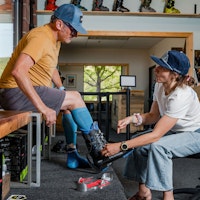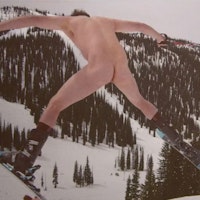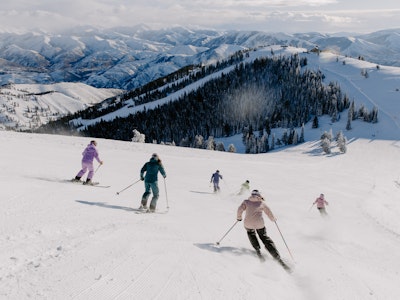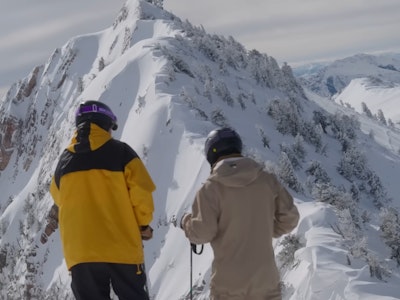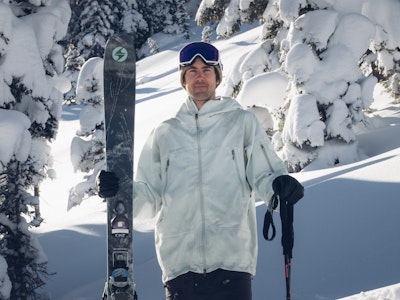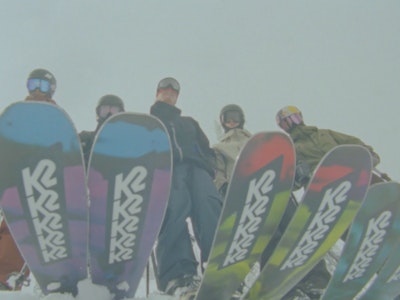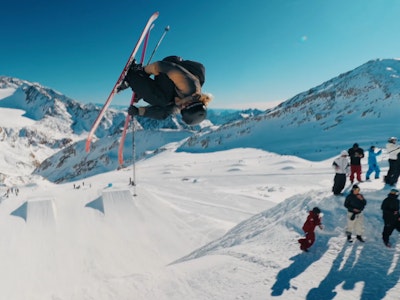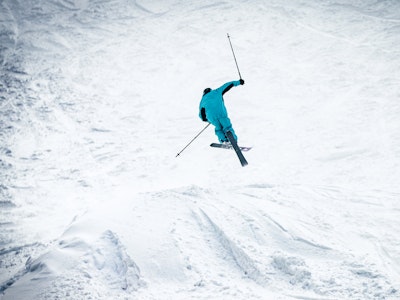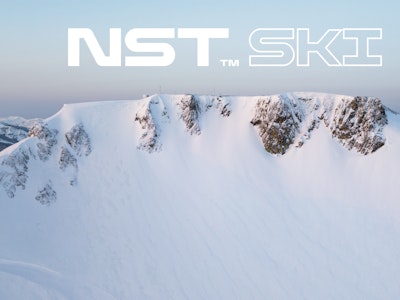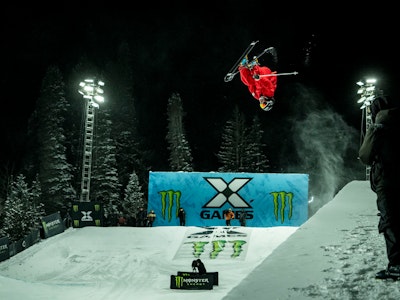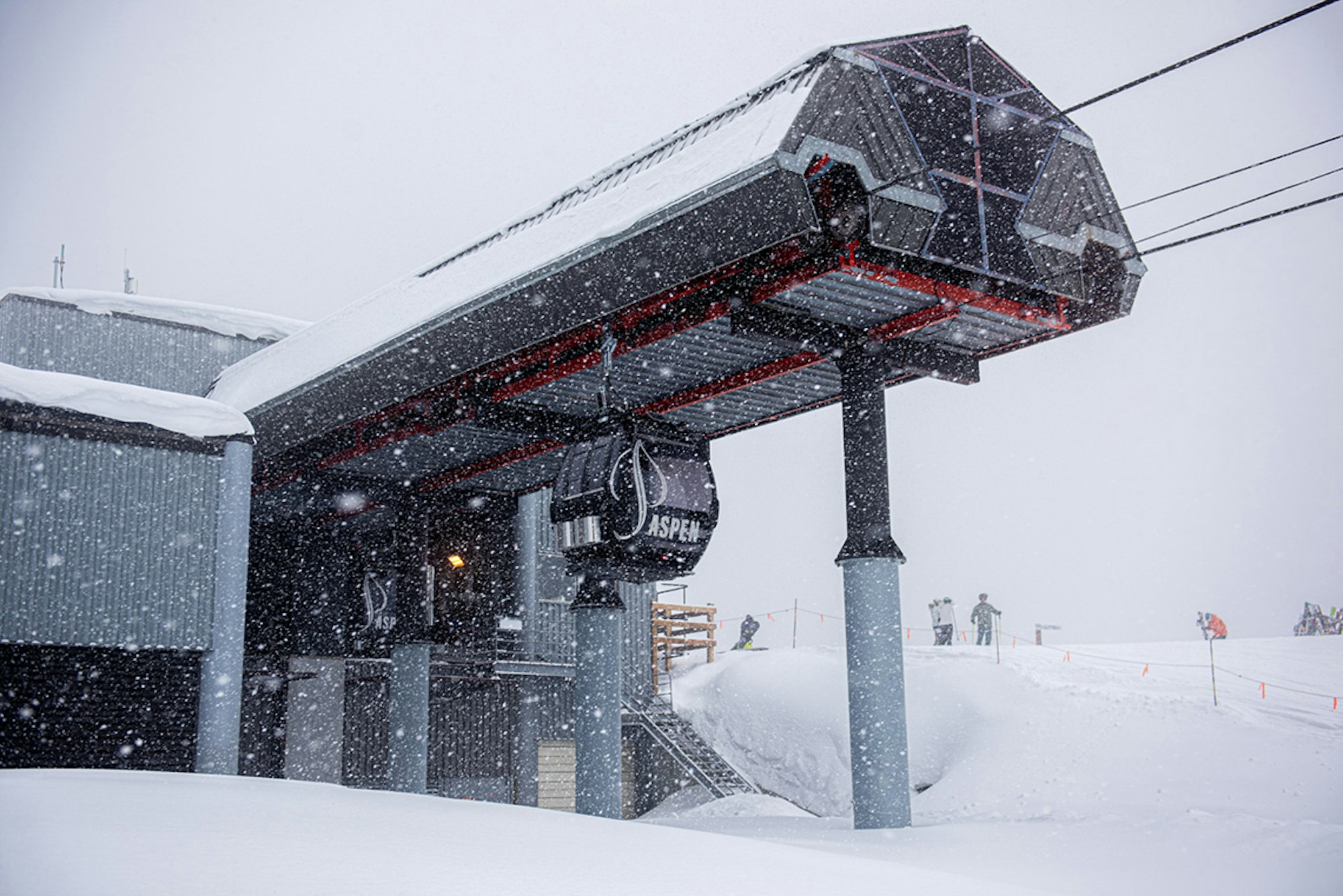Anxiety, panic and confusion have gripped the United States since the novel Coronavirus, COVID-19, began to spread inside its borders. Within skiing, Crystal Mountain, in Washington where the virus outbreak began in the United States, released a statement on March 5, stating it was monitoring the situation and taking recommendations from regional health organizations.
In Colorado, mountain town cases were first reported on March 6 when a man who had been skiing at Vail and Keystone (where he was staying at slopeside accommodations) tested positive for the virus. That same day, Arapahoe Basin released a statement via chief operating officer Alan Henceroth’s blog, relaying that there was no specific risk associated with Arapahoe Basin and that education about the disease was a high priority for everyone. Henceroth ensured that A-Basin would continue to be open for regular ski area operations.
On March 8, Crystal Mountain announced that a guest who had been skiing a the resort on March 5 had tested positive for Coronavirus. He had traveled via the ski bus, spent time in the resort’s Day Lodge and rode the Forest Queen Express lift before utilizing the bus to leave the resort. Crystal stated that it was working with public health officials to gather information about the potential risk of exposure and that the Department of Health had advised it that the risk of transmission was low. The resort added that normal hygienic procedures would continue, there would be an increased frequency of disinfection of bathrooms, kitchens, door handles, etc, and any staff with even slight symptoms would stay home from work. Crystal ensured that, at the time, it had plans to remain open for business.
Vail Resorts, and the mountains under its umbrella, released a statement on March 11 saying it was taking appropriate precautions at all of its resorts, including disinfecting facilities and encouraging proper hygienic practices for its employees. It also included a paragraph outlining those who should consider refraining from skiing: people over 60, with pre-existing health conditions, weakened immune systems or people who are pregnant. Washington’s Summit-at-Snoqualmie released a similar statement that same day. The Denver Post also reported on March 11 that there were nine confirmed cases of Coronavirus in Aspen stemming from an infected Australian’s visit to the ski town. News of the Australian visitor who tested positive first circulated on March 9. Three additional individuals who came in contact with the woman refused to be tested.
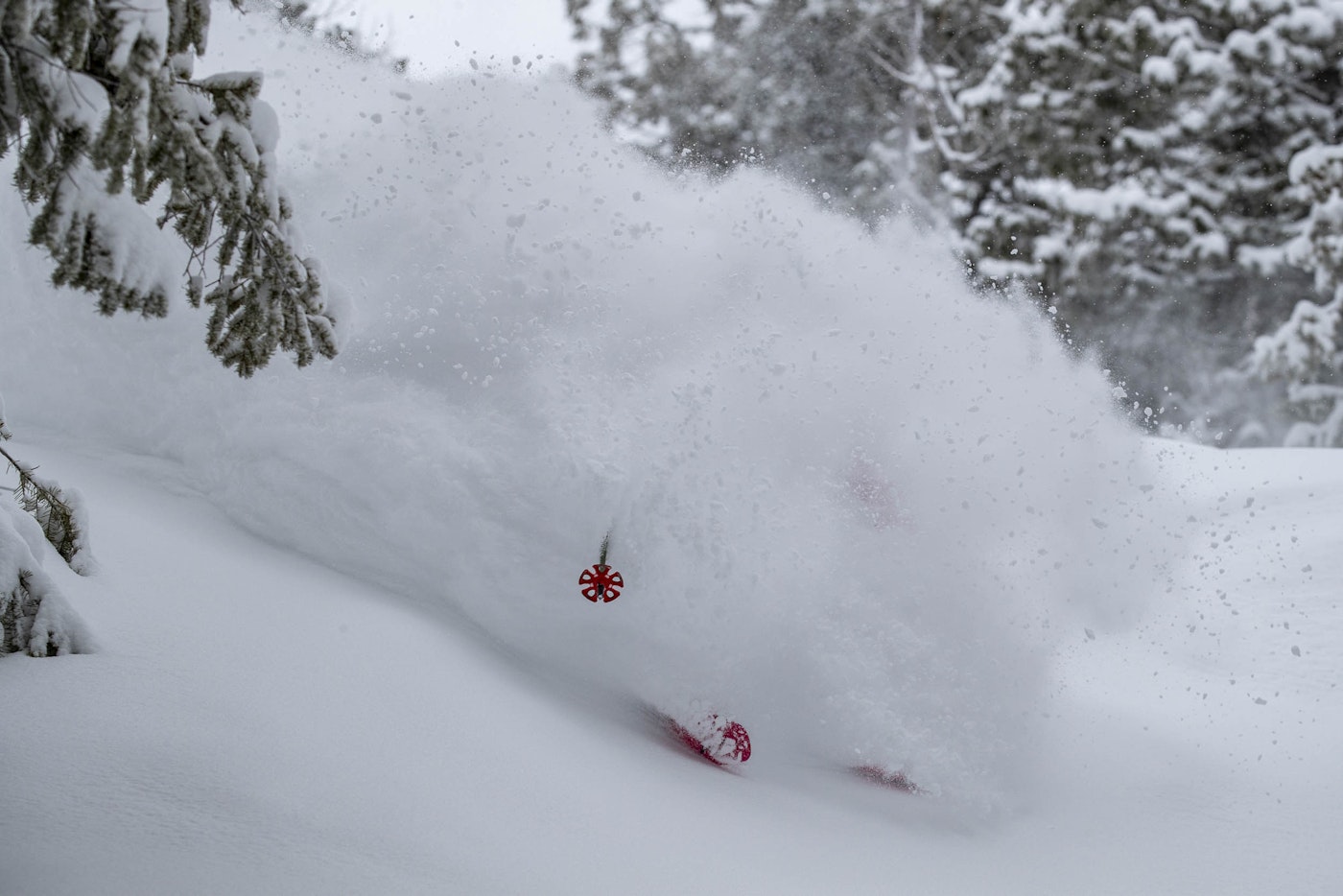
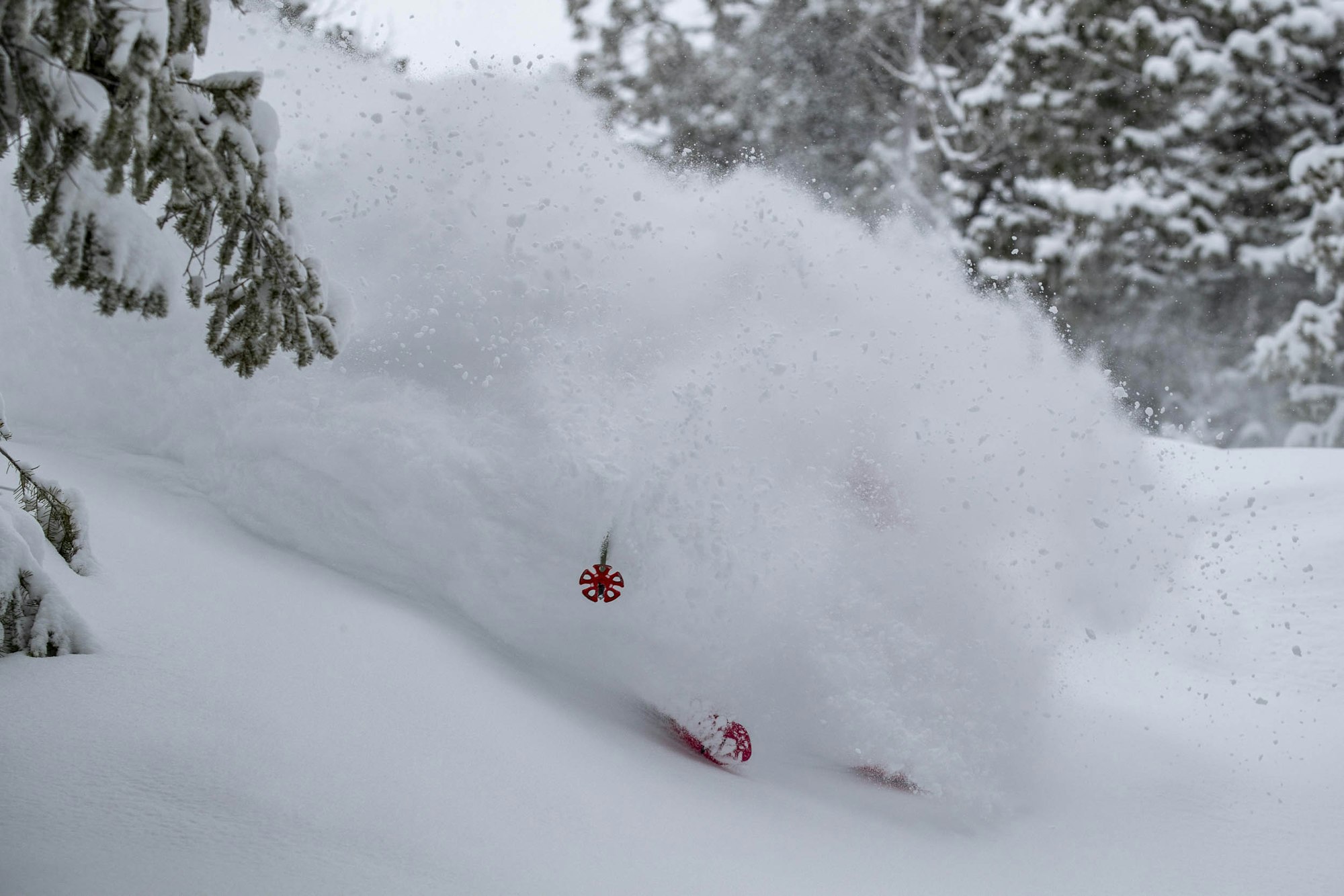
Aspen Mountain, March 2020. Photo: Matt Power
On March 12, following news that the National Basketball Association would postpone its season, the NCAA basketball championships would be canceled, the National Hockey League season postponed, the South by Southwest music festival canceled and more, the floodgates opened, and resort began releasing statements in droves. Berkshire East, in Massachusetts, and Catamount, in Upstate New York, announced they would be halting operations for the rest of the ski season. This excerpt is from a statement given by General Manager, Jon Schaefer:
“In 2006, I was buried in an avalanche in British Columbia. While being buried in that tumble of snow the only thing I could think of was “this isn’t worth it…” This experience informs me now as the only thought that comes to me is, “no ski turn is worth a life.”
My role in this business was given to me by my father who loves being at the mountain every day. His demographics put him at a higher risk than others. If I can’t recommend that he visit his facility, how can I ask anyone else to do the same? Our staff is our family. Our guests are our tribe.
Thus, with conviction, we believe that our businesses can be leaders (however small) in beating back COVID-19 from its current beachhead by immediately closing for what remains of the winter season.
There simply is no benefit to remaining open.”
Whiteface ceased operations of its Cloudsplitter gondola, Snowbird closed access to its aerial tram, Belleayre shut down the Catskill Thunder Gondola for the remainder of the season and Gore Mountain ended operations for the Northwoods Gondola–the first few resorts as of publishing time to completely close an enclosed lift due to Coronavirus. Gore is also permitting guests to ride alone on chairlifts, should they so choose. Mt. Abram, in Maine, closed due to the virus and lack of snow.
Aspen canceled its Hi Fi concerts, the Kick Aspen Big Air, NASTAR National Championships and the US Tech Championships, and added restrictions for entry—not loading unrelated parties or putting singles into partially occupied cabins—on its Silver Queen Gondola. It also activated the seldom-used Lift 1A to spread out guests.
Jackson Hole canceled its Rendezvous Festival and announced it would be limiting the number of guests allowed on its Aerial Tram, Sweetwater Gondola and Bridger Gondola. Mammoth Mountain will be loading its gondolas at 50-percent capacity. Squaw Valley will limit the number of occupants in its tram and funitel cabins.
Powder Mountain canceled events, ceased operations of its Lightning Ridge and Raintree snowcat skiing, shut down its Powder Country Shuttle and limited the number of guests allowed on the Sundown to Timberline bus.
Crystal Mountain released a statement that it would work to limit public gatherings in places like base lodges, following Washington Governor Jay Inslee’s order to prohibit gatherings of more than 250 people in King County and additional western Washington counties. Dr. Jeff Duchin, health officer for public health in Seattle and King County, issued a local order for King County prohibiting gathers of fewer than 250 people without preventative measures put in place to mitigate risk.
Sun Valley canceled its Kindercup, Easter Egg Hunt, Dollar Days, Baldy Bash and Aprés Ski Concerts.
Sierra-at-Tahoe will limit capacity in indoor areas throughout the resort to less than 250.
The Denver Post released an article stating that Colorado ski resorts were planning to continue operation through the outbreak. Governor Jared Polis had previously stated that people over 60, as well as those with chronic health issues, should avoid high elevation travel to mountain towns that have experienced outbreaks, due to a “lack of healthcare capacity for hospitalization and ventilation in these areas as well as the identified hotspots.”
Twitter has been abuzz with speculation from present and former ski industry members, with chatter regarding if and when ski resorts will begin shutting down the season in mass. Alex Kaufman, host of the Wintry Mix Podcast and longtime resort veteran, said on March 12 via Twitter, “If ya’ll like lift served skiing you should do it now cuz this season ain’t going to end like regular. Sorry. #COVID19”
The LiftBlog tweeted, “At least four mountains are shutting enclosed lifts for the season. I rode an aerial tramway today and can confirm it’s the opposite of social distancing.”
Longtime resort marketer, Eric Hoffman, posed the following question on Twitter, “Starting Monday, UT is limiting public gatherings to less than 100 people in a single gathering. Hm, how does that impact businesses where more than 100 people are there at a time???” Similarly, Colorado Governor Jared Polis announced the state was limiting gatherings to 250 people and below as of Friday, March 13.
All ski areas in the Austrian provinces of Tirol and Salzburgerland have ceased operations for the season, as the outbreak in Europe continues to worsen. With places like Disneyland already closing their doors, many are speculating as to whether ski resorts will soon find themselves in a similar predicament. Some speculate that it’s just a matter of time, and those looking to maximize their time on skis better get a touring set-up. Overall, the general sentiment from ski areas at this time seems to be that all are monitoring the situations, taking extra precautions to promote social distancing and increase hygienic practices and abiding with measures taken by local authorities, all with the intention to finish out their ski seasons. Whether that is the true intention or simply an announcement to keep negative public fervor at bay, remains to be seen.
Update, March 13, 3:30 p.m.:
On March 13, Jay Peak announced a temporary closure of the resort due to COVID-19. The resort stated that Quebec’s decision to limit entry into the United States and similar restrictions placed on travelers from Ontario were the biggest factors in the decision, given the upcoming Ontario spring break and the high number of eastern Canadian visitors the resort was expecting. Jay will be offering either full refunds or will help facilitate rebooking of vacations to next winter.
Nub’s Nob in Michigan has also ceased operations for the season.
“Per Governor Whitmer’s executive order 2020-5 prohibiting any assemblages of 250 or more people, Nub’s Nob will be closing effective 5:00 pm on Friday, March 13th. At this point, we do not plan to reopen this season.”
BIG SNOW American Dream, the indoor ski resort in New Jersey that opened for business this winter, has announced it will be closing for at least the next 30 days due to the Coronavirus outbreak.
Arapahoe Basin released an update that one of its employees who had been manning phones in the call center last Saturday has fallen ill, seen a physician and been prescribed a COVID-19 test. The test was scheduled for today, with results expected after 72 hours.
Taos Ski Valley has announced it has moved its closing day forward two weeks and will be ending operations for the 2019-20 ski season on March 22, per a press release. “Amidst the rapidly developing COVID-19 situation, Taos Ski Valley plans to close the ski resort for the remaining two weeks of the originally scheduled 2019-2020 ski season. Sunday, March 22 is the new scheduled closing date and this will include The Blake at Taos Ski Valley hotel, and Taos Air service from Texas and California. All remaining events, including the World Pro Ski Tour World Championships scheduled for April 10 – 12, 2020, have been canceled.”
Update, March 13, 7:05 p.m.:
Jackson Hole Mountain Resort has closed access to its famed Aerial Tram. Load capacity will be limited on its gondolas.
Colorado Governor Jared Polis has stated that he wants ski areas to separate groups of skiers, acknowledging that pre-existing groups have already been exposed to one another, but that those groups shouldn’t be in close contact with other groups.
Ski Marble, in Newfoundland, Canada, will close, effective immediately, due to the coronavirus.
Hidden Valley, in Alberta, Canada, will close effective March 14 due to Alberta’s public gathering policies in light of the coronavirus. Blue Knob, in Pennsylvania, has also announced it will close for the season due to a Pennsylvania state mandate, and California’s Tahoe Donner will end downhill skiing beginning on Monday, March 16.
Update, March 14, 1:58 p.m.:
Eldora Mountain Resort is canceling its free RTD shuttle service for the remainder of the season in response to the COVID-19 outbreak.
Loveland Ski Area is suspending its Ridge Cat snowcat-accessed skiing indefinitely, in response to recommendations for social distancing.
Vail Resorts released a memo stating it would be posting signs around its resorts encouraging social distancing, as well as encouraging guests to ride chairlifts and ski with their parties only, avoiding contact with other parties they are not traveling with. In addition, they are reducing operations at on-mountain dining facilities in order to avoid crowding, including providing only limited pre-packaged food options, and no hot food.
Update, March 14, 5:04 p.m.
Vail Resorts has suspended operations of all of its North American resorts beginning March 15 through March 22. All resort employees will be paid during the closure.
“This decision provides a pause for the entire ecosystem of our mountain resort communities,” said CEO Rob Katz. “It gives everyone the time to assess the situation, respond to ever-changing developments, and evaluate the approach for the rest of season, if we believe it is advisable or feasible to re-open. This was not an easy decision to make, as we deeply considered the impact it will have on our guests, employees, and the people and businesses in our communities.”
This signals the first closures of some of the major resorts in the United States. Following the announcement, Colorado Governor Jared Polis released the following statement:
“Colorado is strong and we will get through this together. The safety and health of our most vulnerable and of our communities is our top priority. I commend Vail Resorts for taking this difficult, responsible step and urge other mountains and resorts to do the same. Coloradans and our business community must continue to rise to meet the demand of these challenging times and everyone must do their part in stopping the spread of this virus.”
This page will be updated as more information becomes available.
Alterra Mountain Company, operators of resorts such as Winter Park, Steamboat, Squaw Valley Alpine Meadows, Mammoth Mountain, Crystal Mountain and more, has announced it is suspended operations of its resorts indefinitely beginning March 15.
The 15 Alterra North American destinations are: Steamboat and Winter Park in Colorado; Squaw Valley Alpine Meadows, Mammoth Mountain, June Mountain and Big Bear Mountain Resort in California; Stratton and Sugarbush Resort in Vermont; Snowshoe in West Virginia; Tremblant in Quebec, Blue Mountain in Ontario; Crystal Mountain in Washington; Deer Valley Resort and Solitude Mountain Resort in Utah; and CMH Heli-Skiing & Summer Adventures in British Columbia.
Alta Ski Area has announced that it will cease operations beginning March 15 until further notice to stop the spread of Coronavirus. The resort will consider re-opening after continued assessment of the situation.
Aspen Snowmass has also announced it will be closing. “By order of the Governor of the State of CO, we are closing all ski operations immediately and ancillary businesses over the next week, with the exception of the Limelight Aspen.”
Loveland Ski Area, located along the Continental Divide, will also be closed beginning March 15, and will provide refunds to guests accordingly. Uphill access will still be permitted.
Arapahoe Basin will be closed for an undetermined timeframe beginning March 15 due to the Coronavirus.
Update, March 14, 8:51 p.m.:
Colorado Governor Jared Polis issued an executive order requiring all Colorado ski resorts to close. “It is with a profound sense of pain and grim responsibility that I take the agonizing action that this moment demands. I take solace knowing that while we will be temporarily closed for business, we will be saving the lives of hundreds, perhaps thousands of Coloradans in the days and weeks ahead.” The initial order is set for a one-week timeframe, but Polis has the power to amend that accordingly.
The Summit-at-Snoqualmie has halted all ticket sales until further notice. Tickets will not be available online or at the walk-up window.
Utah’s Snowbird Resort, known for having the longest season in the state, has suspended operations through March 22.
Killington Mountain, one of the premier ski resorts in Vermont, has also suspended operations through March 22.
California’s Sugar Bowl Resort has suspended operations until further notice.
Update, March 15, 2:59 p.m.:
Jackson Hole is the latest major North American resort to announce an early end to the 2019-20 ski season. “This has been a quickly evolving situation, and JHMR has worked directly with health officials, local and state governments,” the resort said in an Instagram announcement.
Alex Kaufman, of the popular WintryMix Podcast, released an informative episode last night with Jay Peak’s Steve Wright, Ski Area Management Magazine’s Dave Meeker and Vern Cabin/Mountain Gazette’s Mike Rogge. Give it a lesson for a bit of context.
We will continue to update this post as more information becomes available.

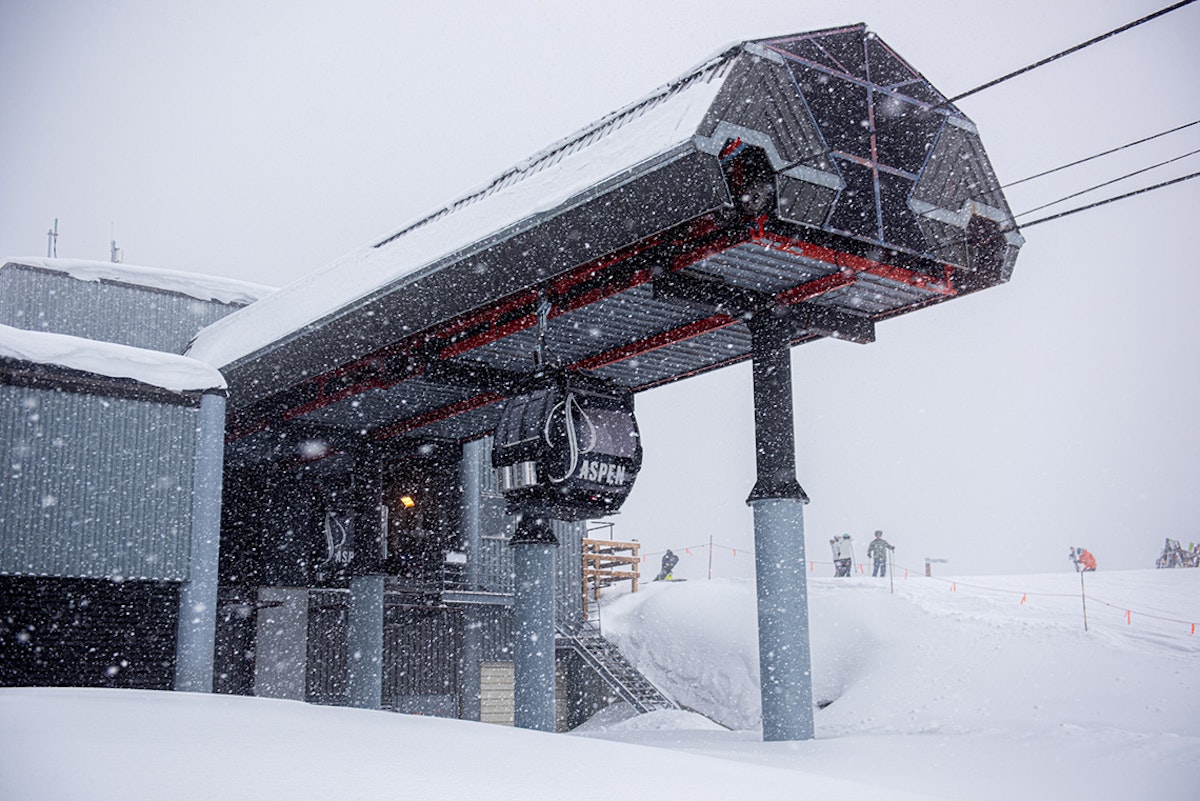
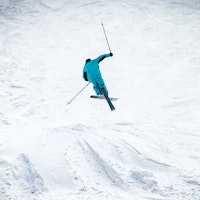
![[GIVEAWAY] Win a YoColorado X Coors Banquet & Liberty Skis Prize Package](https://www.datocms-assets.com/163516/1769630228-pastedgraphic-3.png?w=200&h=200&fit=crop)
